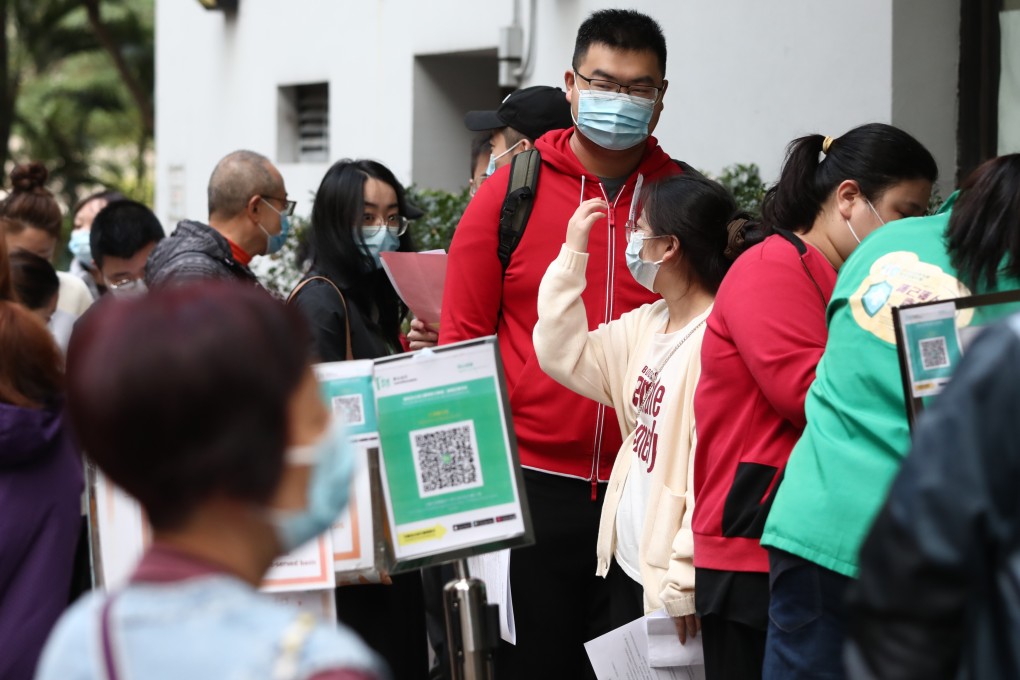Editorial | 1,161 reasons why city cannot afford to let its Covid guards down
- As daily coronavirus infections hit a record, the government needs to modify its strategy and ensure greater clarity, but push on with vaccinations and its testing and isolating regimes

A concern for health officials everywhere during the Covid-19 pandemic has been that the number of infections will get out of control and overwhelm resources. Their fears have been realised in Hong Kong with daily cases for the first time topping 1,000, filling to near capacity accident and emergency rooms, hospital wards and quarantine camps, and creating manpower shortages. The highly transmissible Omicron variant accounts for the vast majority, but even though it appears to cause less severe illness than other strains, it can still be deadly. For that reason, while the government needs to quickly modify its strategy, guards cannot be let down and strict testing and isolating regimes have to continue while ensuring the unvaccinated get inoculated.
The surge to 1,161 confirmed cases, almost doubling the previous record, was predictable; daily infection numbers have been sharply rising since last week. Several public hospitals have already reached capacity and there is concern that quarantine facilities will soon be filled. People worried they have the coronavirus have gone to emergency units, leading to long waits for consultation and testing. Those with health emergencies are caught up in the swell and their well-being is being put at risk.
There is every reason to worry about having Covid – the World Health Organization lamented this week that since Omicron was identified in November, 500,000 people have died of coronavirus. Those with mild symptoms who think they are infected or believe they are carriers after using rapid testing kits have to get prompt medical help. But their first option should not be public hospitals and clinics. As health authorities explained yesterday, they should first turn to special hotlines for guidance and the private sector.
The tough new social-distancing measures were a response to the surge. Aimed at containing the spread, they limit or curtail public gatherings and, for the first time, attempt to stop large private get-togethers. A vaccine passport approach that allows only people who have got jabbed to enter shopping malls, markets, department stores, restaurants and a host of other venues takes effect on February 24. The approach also aims to increase vaccination rates, especially among the elderly; it would seem to be working, with a record 78,000 people getting jabs on Tuesday.
As infections mount, the government’s strategy has to be properly mapped out rather than be a knee-jerk reaction to circumstances. Only on Monday was a shift made with asymptomatic cases, with patients being taken to Penny’s Bay for quarantine rather than being put in hospital. People have become frustrated and confused by seemingly piecemeal responses. There has to be greater clarity.
